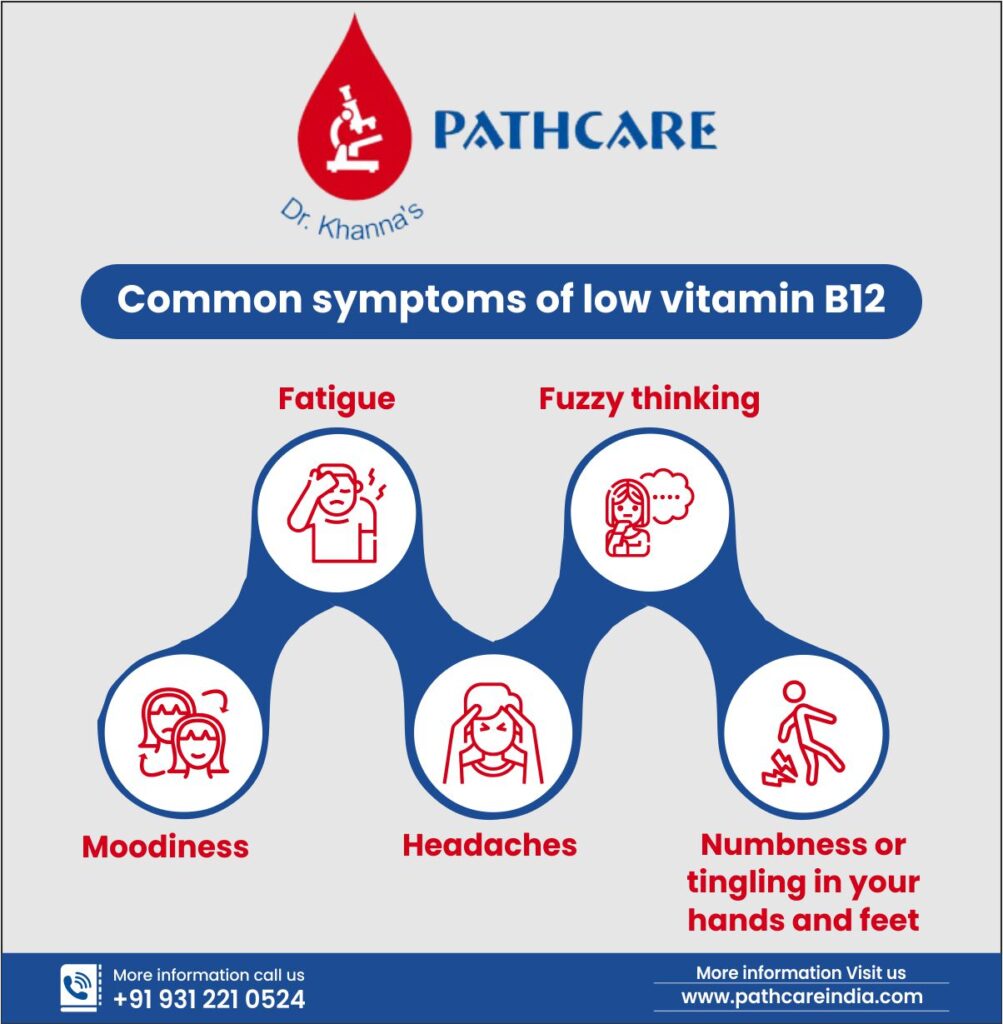No products in the cart.

Vitamin B12 is a vital nutrient for good health. The body needs its steady levels to make enough red blood cells and keep your nervous system working. A simple blood test can show whether your levels are healthy, low or somewhere in between.
The tests may be recommend for one or a few different reasons, such as:
- You’ve been diagnosed with anemia.
- You are suspected to have a medical condition that affects how well your body absorbs B12.
- You’re taking medications that may interfere with B12 absorption.
- You have symptoms linked to low B12 levels.
- You follow a vegan or strict vegetarian diet.
The main health problem associated with poor B12 absorption is a condition called “pernicious anemia.” It develops if you lack intrinsic factor, a type of protein made in the stomach without which, enough vitamin B12 can’t be absorbed from food.
Crohn’s disease and celiac disease may also cause your B12 levels to go down.
Several types of medications might affect your vitamin B12 levels. The drugs that help treat gastroesophageal reflux disease (GERD) are the common ones. Secondly, the proton-pump inhibitors reduce the amount of acid in the stomach, which is needed for food to release B12. Metformin, a drug for diabetes, also may interfere with B12 absorption. If you’re not taking any of these medications or haven’t been diagnosed with pernicious anemia or other health problems that might cause lower B12 levels, your doctor may order the test based on your symptoms and dietary or health history.
Common symptoms of low vitamin B12 include:
- Fatigue
- Fuzzy thinking
- Numbness or tingling in your hands and feet
- Headaches
- Moodiness
These could be signs of many conditions. A blood test that checks your B12 levels can rule out or confirm that your low B12 levels may be the issue.
Your vitamin B12 test shows that your levels are healthy. You just have to continue eating a balanced diet. Sources of vitamin B12 include fish, meat, dairy, and other foods fortified with B12, like cereal and milk.
Vitamin B12 deficiency can lead to problems with brain function, your nervous system, and other aspects of your health. It’s important to check your levels if there are any signs that they are low. Older adults are at increased risk for low levels of vitamin B12. Talk to your doctor about whether your diet provides enough B12, or if taking a supplement would help.
Elevated levels of vitamin B12 may be a sign of a serious, even life-threatening, disease. Hematologic disorders like chronic myelogenous leukemia, promyelocytic leukemia, polycythemia vera and also the hypereosinophilic syndrome can result in elevated levels of cobalamin. The increase in circulating cobalamin levels is predominantly caused by enhanced production of haptocorrin. Several liver diseases like acute hepatitis, cirrhosis, hepatocellular carcinoma and metastatic liver disease can also be accompanied by an increase in circulating cobalamin. This phenomenon is predominantly caused by cobalamin release during hepatic cytolysis and/or decreased cobalamin clearance by the affected liver. Altogether it can be concluded that an observed elevation of cobalamin in blood merits a full diagnostic work up to assess the presence of disease.
Normal values are 160 to 950 picograms per milliliter (pg/mL), or 118 to 701 picomoles per liter (pmol/L).
Values of less than 160 pg/mL (118 pmol/L) are a possible sign of a vitamin B12 deficiency. People with this deficiency are likely to have or develop symptoms.
Older adults with a vitamin B12 level less than 100 pg/mL (74 pmol/L) may also have symptoms. Deficiency should be confirmed by checking the level of a substance in the blood called methylmalonic acid. A high level indicates a true B12 deficiency.
An increased vitamin B12 level is uncommon. Usually, excess vitamin B12 is removed in the urine.





